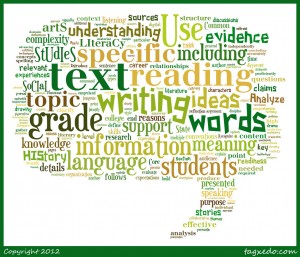Inquiry is a processes of knowledge seeking for knowledge building. Inquiry is characterized by curiosity, observation, questioning, hypothesizing, investigation, evaluation, discovery, evidence seeking, making connections, collaboration, argument building, synthesis, meaning making, problem solving, expression and reflection. Inquiry is messy, and often involves periods of uncertainty and confusion. Inquiry requires persistence, flexibility, independence, risk taking and open mindedness. Inquiry often results with more questions than actual answers.
These terms are often used interchangeably. Research tends to have a more formal connotation and is often characterized by the investigation, writing, documentation and publishing parts of the process. Inquiry is characterized by questioning, based on the understanding that questioning leads to deeper connections, meaning making and/or innovation. Inquiry is often used to identify a more hands on kind of learning experience, while the term research is often used to identify qualitative outcomes, such as “the research proves.” Maybe because research is a more commonly used terminology and definitely because inquiry is essential for original research, librarians often use the term “inquiry based research”. It’s important to note that fact finding alone is neither inquiry nor research.
Student Learning & Inquiry
Inquiry is a student driven learning experience in which teachers act as guides. Inquiry learning experiences not only allow students to construct knowledge related to the particular area of Inquiry, but more importantly to develop the skills and dispositions necessary to construct knowledge independently for future inquires. Through the Inquiry Process, students learn how to learn.
School Librarians & Inquiry
School librarians (teacher librarians, library media specialists) teach the skills and dispositions necessary for effective Inquiry. Standard 1.1.1 of AASL’s Standards for 21st Century Learners, reads: Learners use skills resources and tools to: “Follow an Inquiry-based process in seeking knowledge in curricular subjects, and make the real-world connection for using this process in own life”School librarians live and breathe Inquiry!
- Stripling’s Inquiry Model: (emphasizes questioning): Connect, Wonder, Investigate, Construct, Express, Reflect
- Kuhlthau’s Information Search Process (emphasizes feelings and thoughts in addition to actions): Initiation, Selection, Exploration, Formulation, Collection, Presentation, Assessment
- Eisenberg’s Big 6: Task Definition, Information Seeking Strategies, Location and Access, Use of Information, Synthesis, Evaluation
Although these models may appear step like, they are not meant to be linear. For example, the more someone learns about something the more questions they tend to have.
Inquiry and Common Core State Standards
Although Common Core State Standard developers chose to not use the term Inquiry, the skills and dispositions necessary for Inquiry are those that the Common Core emphasizes.
- “Students need the ability to gather, comprehend, evaluate, synthesize, and report on information and ideas.”
- Students need to “conduct original research in order to answer questions and solve problems”
- Students need to “analyze and create high volume and extensive range of print and nonprint texts in media forms old and new”
- “The students need to produce and consume media is embedded into every aspect of today’s curriculum”
- “Research and media skills and understandings are embedded throughout the standards rather than treated in a separate section”
Inquiry learning fosters the critical thinking, perseverance, evidence seeking and deep learning understandings associated with the Common Core.An analysis of the Crosswalk, between Common Core Standards and AASL’s Standards for 21st Century Learners, details and highlights how the skills and dispositions associated with Inquiry learning are vital for meeting Common Core Standards.
In Note…
My impetus for writing this post, which became an Inquiry in and of itself, was our school district’s purchase of a “Research Report Writing Unit”. My concerns about the unit allowed me to dig deeper in order to clarify Inquiry for a general education audience.
Writing Unit Concerns:
- By referring to this unit as a Writing Unit, students do not have the opportunity to create the understanding that an Inquiry process is an effective means for knowledge seeking no matter the purpose or expression of for Inquiry. Writing is just one of many ways learners express their constructed knowledge. See Research: A Thinking Process Expressed in Writing
- We’ve been working towards utilizing an Inquiry model, in our school and district, in order that students have a greater opportunity for skill transfer. Although there is something to be said for sharing with students that no matter the terminology, the understandings are the same or similar, the terminology and skills chosen for this unit may work to confuse students. In addition, because this unit is, at this point, the only complete inquiry based research learning experience our students will experience while attending our school, it would be most beneficial if students have the opportunity to utilize a researched and proven Inquiry process.
Because this unit was purchased, it needs to be utilized. In retrospect, during planning, I should have suggested framing the unit with Stripling’s Inquiry Model and pulling scope and sequence sections out from the purchased unit as they fit into this well established Inquiry process. This would have been beneficial not only because we’d be starting with a proven model, but also because we would have more effectively been able to identify missing skills and understandings.
- Small, Ruth V. and Marilyn Arnone, Barbara K Stripling, Pam Berger.Teaching for Inquiry. Neal-Schuman Publishers, Inc. 2012.
- Harada, Violet and Joan M. Yoshina. Inquiry Learning Through Librarian-Teacher Partnerships. Linworth Publishing, 2004.
- Inquiry-based Learning: Explanation.” Thirteen Ed Online. Thirteen, n.d. Web. 17 Aug. 2014. <http://www.thirteen.org/edonline/concept2class/inquiry/>
- Kuhlthau, Carol Collier. “Inquiry Inspires Original Research.” School Library Monthly. N.p., n.d. Web. 19 Aug. 2014. <http://www.schoollibrarymonthly.com/articles/Kuhlthau2013-v30n2p5.html>.
- “Standards for the 21st-Century Learner.” American Library Association. N.p., n.d. Web. 19 Aug. 2014. <http://www.ala.org/aasl/standards-guidelines/learning-standards>
- Common Core State Standards. Common Core State Standards Initiative, n.d. Web. <http://www.corestandards.org/ELA-Literacy/>
- Kuhlthau, Carol Collier. “Guided Inquiry: School Libraries in the 21st Century” School Libraries Worldwide, Jan 2010, Vol 16, No 1,17-28.
- “Research: A Thinking Process Expressed in Writing.” DesigningTL. N.p., n.d. Web. 19 Aug. 2014. <http://brendaboyerlearningdesign.com/2013/05/15/research-a-thinking-process-expressed-in-writing/>
